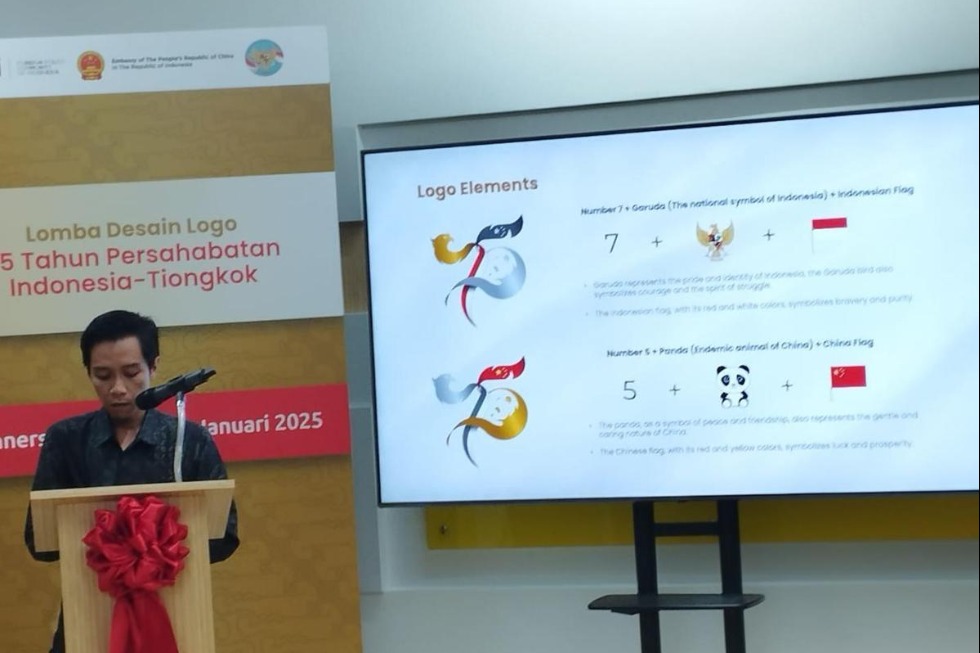Film recounts tragic story of 'love, loss and sacrifice'


Beneath the waters of the East China Sea lies a silent witness to a forgotten tragedy — the wreck of the Lisbon Maru. In October 1942, this Japanese cargo ship traveling from Hong Kong to Japan, unmarked despite carrying 1,816 British prisoners of war, or POWs, was torpedoed by a US submarine near Dongji Island, part of the Zhoushan Archipelago in China's Zhejiang province.
After the attack, Japanese forces sealed the prisoners below deck, leaving them to drown. Those who managed to escape were met with gunfire from Japanese troops. In total, 828 soldiers were lost to the sea forever. Amid the despair of the survivors, local Chinese fishermen defied danger and risked their lives to rescue 384 drowning soldiers.
The tragedy, however, was compounded by decades of silence. Japanese authorities denied responsibility and the suffering of the British POWs was confined to the memories of their descendants.
Decades later, a Chinese documentary, The Sinking of the Lisbon Maru, reveals this buried history. Directed by Fang Li, a geophysical exploration expert turned filmmaker, the film recounts the tragedy and heroism surrounding one of World War II's most overlooked events.
The film premiered at the British Film Institute in London on Aug 15,2023. After premiering at the Asian World Film Festival in Los Angeles on Nov 18, the documentary began its Oscar-qualifying run in Santa Monica on Friday.
"No one had ever spoken publicly about this story before. It was as if history had erased these lives," Fang told China Daily during a recent special screening of The Sinking of the Lisbon Maru in Beverly Hills, Los Angeles.
Journey begins
Fang's journey to document the forgotten history began in 2014 when he first heard residents recounting stories they had been told by fishermen. He started to discover more about the Lisbon Maru in 2016 and finally located its shipwreck in 2017.
Determined to restore their voices amid the absence of global recognition, Fang embarked on an eight-year journey, overcoming pandemic challenges, funding struggles, and historical silences.
"For me, this is not just a movie; it is my lifetime commitment," Fang said. "This story is about the courage of human beings, about universal feelings — love, loss, and sacrifice."
Central to the film are the fishermen in Zhoushan, who risked their lives to save the British POWs. Despite the threat of Japanese forces, they sailed into dangerous waters, pulling struggling soldiers from the sea and sheltering them.
"When I imagine those British soldiers struggling in the water, shot at by the Japanese, and the Chinese fishermen rushing to their rescue, it's overwhelming. It's the kind of courage that leaves you in awe," Fang said.
Fang's documentary builds on the work of British historian Tony Banham, who in 2006 published The Sinking of the Lisbon Maru: Britain's Forgotten Wartime Tragedy after interviewing survivors and unearthing critical documents. Fang expanded the narrative, incorporating the voices of descendants and focusing on the long-term psychological trauma faced by survivors.
"When I visited families of the POWs, many were in tears," Fang said. "No actor could portray the depth of emotion I witnessed. These families waited decades for answers, for healing. … They were forgotten by history, yet their love continued. Our film gave them a sense of closure."
The film's message of humanity resonates deeply. Stephen Nemeth, a Hollywood producer, called it "a healing device between China and America".
"To see those incredible Chinese fishermen risk their lives for these British soldiers is remarkable," Nemeth told China Daily. "Fang's dedication to uncovering this story and connecting families, even at the very end of their lives, is a huge gift."
Arnold Schwartzman, an Oscar-winning filmmaker, praised the documentary for its artistry and historical significance.
"It's beautifully made and deeply personal. Stories like these remind us of the sacrifices made in war and the enduring light of humanity," he told China Daily.
For Fang, the film carries a heartfelt plea for peace.
"War is pure madness," he said. "It destroys families, leaving nothing but grief and unanswered questions. In times of peace, we have to hold our loved ones close and do everything we can to stay far away from the war."

































